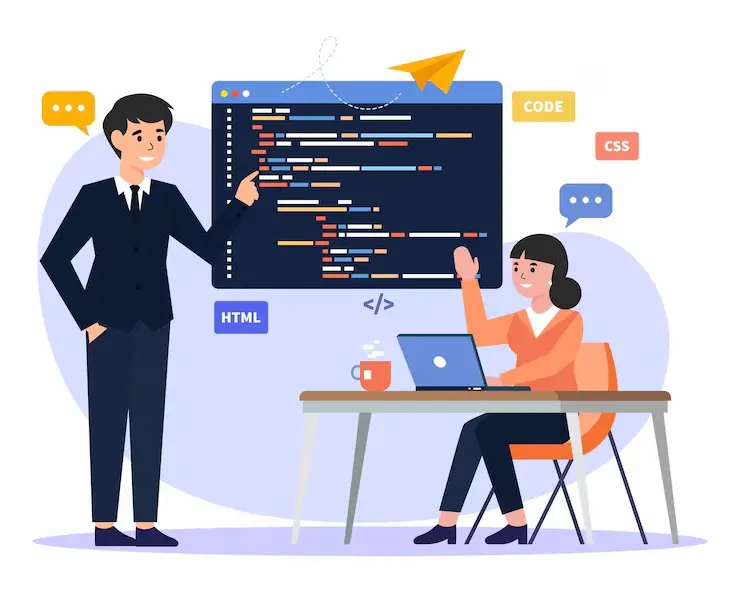In today’s fast-paced technological world, a comprehensive education in software development requires a perfect blend of theoretical knowledge and practical skills. The Bachelor of Vocation (B.Voc.) in Software Development exemplifies this approach, ensuring graduates are well-prepared for industry demands. This blog explores how the B.Voc. program balances theory and practice to provide a holistic learning experience.

The Importance of Theoretical Knowledge
Theoretical knowledge lays the groundwork for practical skills in software development. Key theoretical components of the B.Voc. Software Development curriculum include:
- Data Structures and Algorithms: Fundamental for efficient coding and problem-solving.
- Programming Languages: Mastering syntax and semantics for writing effective code.
- Software Engineering Principles: Methodologies for designing, developing, and maintaining software.
- Database Management: Techniques for storing, retrieving, and managing data.
- Computer Networks: Understanding networking principles for developing interconnected applications.
- Theoretical knowledge provides the conceptual framework necessary for adapting to new technologies and methodologies as the field evolves.
The Role of Practical Skills
While theoretical knowledge is essential, practical skills are crucial for applying this knowledge in real-world scenarios. The B.Voc. Software Development program emphasizes practical skills through various hands-on learning opportunities:
- Lab Sessions and Workshops: Applying theoretical concepts in controlled environments to reinforce understanding.
- Projects and Assignments: Developing critical thinking and problem-solving skills through real-world projects.
- Internships: Gaining invaluable experience in professional settings by working on actual industry projects.
- Industry Collaboration: Partnering with software companies for industry-relevant projects and up-to-date skills.
- Workshops with Industry Experts: Learning current trends and best practices from professionals.

Striking the Right Balance
The B.Voc. Software Development program’s success lies in balancing theory and practice through a well-designed curriculum:
- Structured Curriculum: Ensuring theoretical lessons are followed by practical applications.
- Continuous Assessment: Regular evaluations combining theoretical exams and practical tests.
- Feedback Mechanism: Providing constructive feedback during lab sessions and project reviews.
- Adaptive Learning: Updating the curriculum based on the latest industry trends and technological advancements.
Impact on Career Readiness
Graduates of the B.Voc. Software Development program are well-prepared for the workforce due to their balanced education. Employers value the combination of theoretical knowledge and practical skills, which allows graduates to quickly adapt to job demands. The emphasis on practical experience ensures B.Voc. graduates have a portfolio showcasing their abilities, giving them a competitive edge in the job market.
Conclusion
The B.Voc. Software Development program highlights the importance of balancing theory and practice in education. By integrating both aspects, the program ensures graduates are knowledgeable and capable of applying their skills in real-world scenarios. This balanced approach enhances career readiness and contributes to the development of skilled professionals driving innovation in the software industry. As the field of software development evolves, the B.Voc. program stands as a model for effectively preparing students for future challenges.
To know more: B.Voc Software Development Course | St. Teresa’s College





